Secret report reveals crime gangs’ links inside police as authorities battle waterfront corruption
Organised crime groups are using family ties to infiltrate various agencies, including police and customs, to help traffic mass consignments of drugs through Australia’s ports and wharves, an intelligence report reveals.

Police Tape podcast
Don't miss out on the headlines from Police Tape podcast. Followed categories will be added to My News.
Australia’s maritime industry has been compromised by organised crime groups using family ties to infiltrate various agencies, including police and customs, to help traffic mass consignments of drugs through our ports and wharves.
An Australian Federal Police “highly protected” intelligence report seen by True Crime Australia has flagged the continued “vulnerability” of the industry, with weaknesses along various parts of the import chain from logistics to transport, including brokerages and trucking groups.
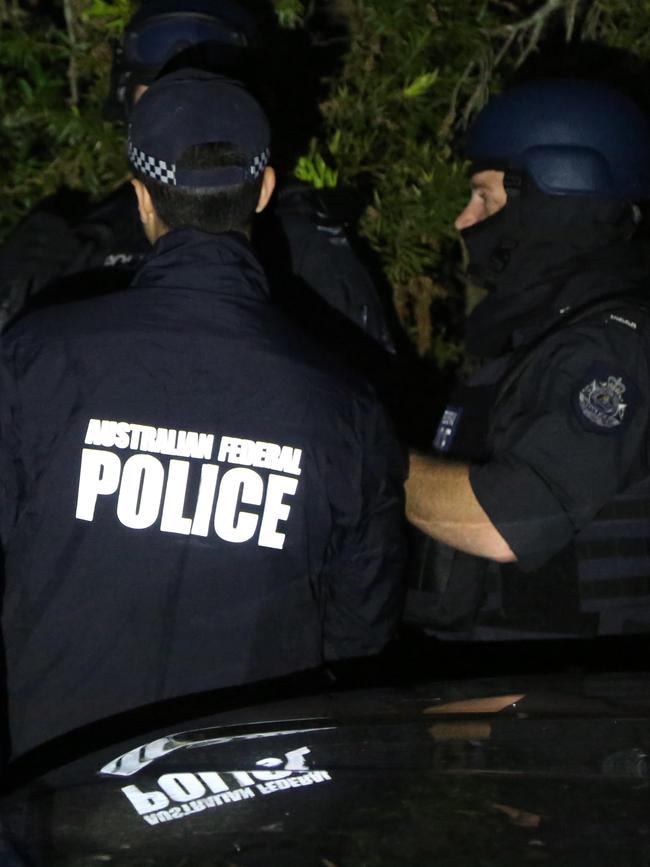
But more critically, it has warned gangsters have family or “clan” members working for related government agencies — including the AFP’s own law enforcement ranks and those of state police — who were potentially “sleeper” agents waiting to assist with illegal imports.
Those figures were either blood relatives or very close associates from the same “clans”, notably from Balkan nations.
MORE FROM TRUE CRIME AUSTRALIA
Deadly intent: Gang’s crazy price on two cops’ heads
Shootouts: Inside the crime family feud that terrorised a city
Outburst: The one thing that truly shocked Hutchence detective
The report cites “next generation” extended family members, some willing and others being stood over, now entering the criminal milieu as “enablers”.
“The effective succession plans for the continuation of ‘the business’ provides a seamless network for importation,” it concludes.
It also notes the “significant risks to Australia’s national security” posed by the maritime-related trafficking of biotechnology or weapons for criminal or terrorism purposes if not exposed and prosecuted.
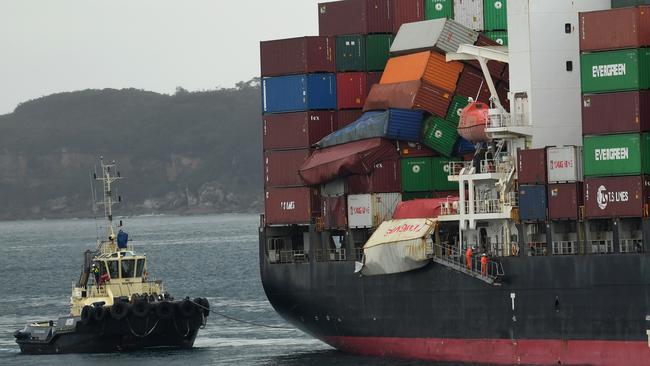
Two recent AFP covert intelligence-led operations identified customs brokers with systems access and the owner of a trucking company with port access that highlighted “entrenched infiltration of logistics and transport industry by Balkan organised crime”, while another looked at the corruption of whole cargo ships and crews to move drugs between nations. A fourth reviewed Outlaw Motorcycle Gangs (OMCG) and law enforcement links.
The Australian Commission for Law Enforcement Integrity (ACLEI) has been involved in the internal corruption detection within the ranks of the AFP, Australian Border Force (ABF), Home Affairs and other Commonwealth agencies.
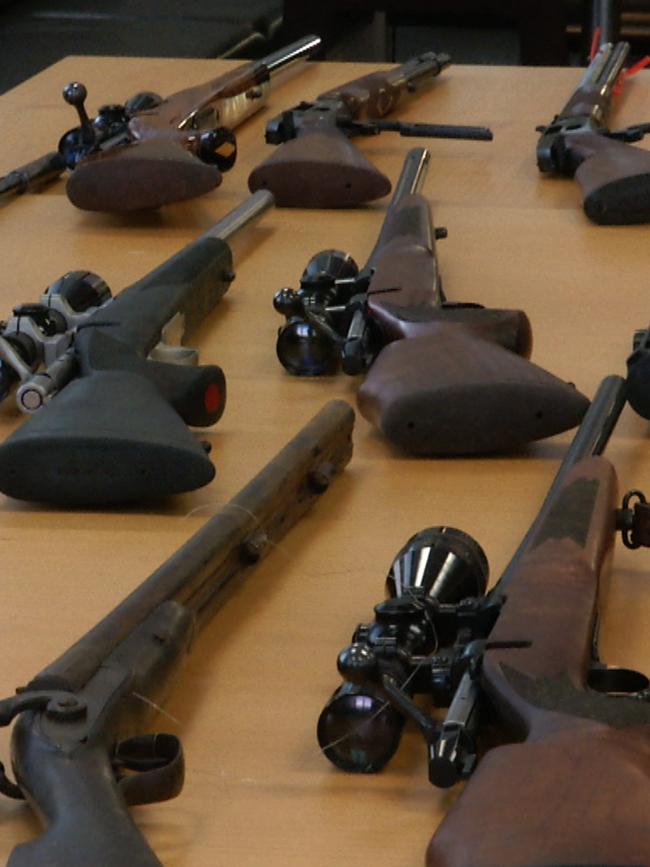
The multi-agency Joint Task Force Polaris was created in July 2010 to target not just the waterfront, but the whole supply chain, from the source of the import to its arrival, clearance and dispatch to owner, legitimate or otherwise.
Its former head until August 2016, now retired NSW Police detective superintendent Nick Bingham, was unaware of the AFP report, but said “familial corruption” did not surprise him from what he saw in his two years as Polaris boss unearthing corruption in the import chain.
He said that even after 30 years’ experience and having been exposed to internal affairs investigations in relation to the integrity of police officers, Polaris “really opened my eyes … to the corruption that was out there in relation to logistics and supply companies and some of the government agencies, or people within government agencies, that were involved, and NSW Police wasn’t immune from that, Australian Federal Police, Australian Border Force, quarantine agriculture.
“There were a whole raft of people — very, very small minority of people from within some of these agencies though — that the syndicates need to facilitate these imports.”
Polaris was shut down under budgetary restraints.
In 2018, ACLEI investigations included an ABF officer at an airport allegedly improperly disclosing sensitive information that was relayed via family and via text to an OMCG member warning him he was on a federal watchlist.
The year before a former ABF and NSW Police officer was arrested after allegedly paying another senior officer $100,000 to help a family-run tobacco smuggling operation.
DRUG LORD’S FAMILY BILLED FOR BULLET
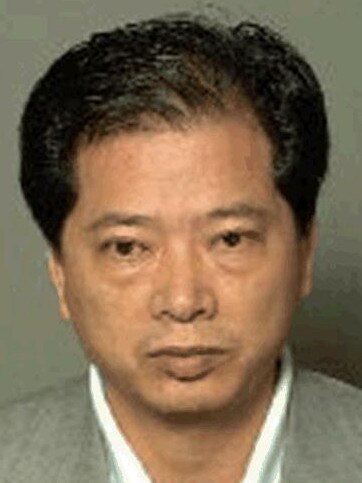
In a crowded prison cell in southern China, Yuanlin Wu sits waiting for his family.
But they are not there to visit him or bring him food or hope.
They are there to pay authorities for the cost of the bullet which is to be fired into the back of his neck and complete his conviction process.
And all because he left a single fingerprint on a forgotten tool in a sea container linked to one of the biggest drug hauls Australia has ever seen — enough to supply traffickers in Sydney, Adelaide, Brisbane and Melbourne for the rest of that year.
“They (authorities) told us his family has to pay for his period of incarceration, including the cost of the bullet that executes him,” former head of the NSW Police drug squad Nick Bingham said yesterday of the 52-year-old, who had extensive business and property interests in Australia, including a luxury golf course on the NSW north coast.
“He was incarcerated but his future was not very bright.”
HEAR MORE FROM NICK BINGHAM ON POLICE TAPE
Wu was a major international drug lord behind numerous drug shipments from China and Australia between 2009 and 2011, aided by corrupt officials in both China and Australia, including on the waterfront at Botany Bay and elsewhere.
He was not identified as being behind the shipments until 2012 and sentenced to execution in 2013.
At the time of his retirement Bingham was a detective superintendent in charge of the Polaris multi-agency task force looking at waterfront corruption, and he holds this case up as an example of why such a task force is needed again.
Wu might by now be gone, but those who assisted in some way with this global enterprise could still be operating.
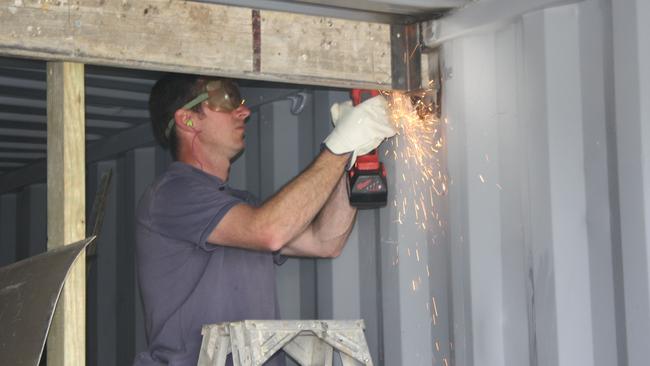
SINGLE CLUE LEADS TO CHINA’S DEATH ROW
Bingham was the drug squad commander when in December 2011 Liverpool police asked him to Chipping Norton to look at a 20ft (6m) sea container, which was at a container refurbishment facility.
At the top of the container was a steel brace, running the length of the box. Inside that was a very long, sock-like material, which was stamped “tea”, but in fact concealed 15kg cans of pseudoephedrine used to make the deadly drug ice.
Further investigation found the container was one of a shipment of 110.
Only 56 were ever tracked and recovered from 22 towns across the state, each set up with the same drug concealment method, and some still holding amounts of pseudoephedrine, heroin and amphetamine. Most of the containers were bought innocently by farmers and workers to use as storage, not realising there was a drugs stash inside, but others were found tampered with and empty.
Police suspected at least one tonne of drugs had entered the country, half of which made it through to traffickers and dealers. What was found, about 600kgs, was valued at more than $150 million and at the time was a record seizure for NSW Police.
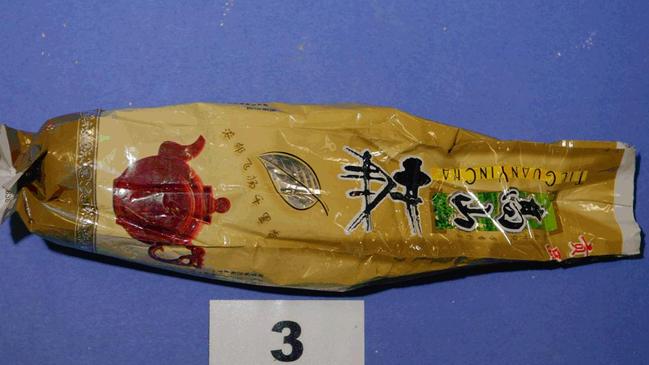
The break for police came with a single fingerprint found on a tool left inside one of the containers.
“That’s all we found forensically out of all these containers,” Bingham said yesterday. “But as luck would have it, that fingerprint came up on an international database where a fellow of Chinese origin was arrested in New Zealand for a fairly innocuous offence many, many years ago under a certain name, and through a lot of good work by our intelligence analysts (we) managed to identify who this person was.
“We eventually tracked him back to China and, coincidentally, he was actually under arrest in China by the Chinese authorities for attempting to do identical importations from China into Australia.
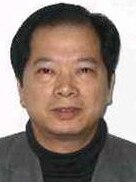
“We had the satisfaction, I guess, of knowing who was responsible, but at this end we actually didn’t know where the drugs went. Five hundred kilos got away from us that we were not aware of, and that would have gone to a multitude of high-level traffickers in NSW and around the country.”
Unbeknown to Australian authorities at the time, Wu had been arrested and jailed in Huizhou City in central Guangdong, and later moved to an undisclosed location to await his fate, when NSW detectives matched the print with one found on the Interpol database, connecting it to him, albeit using an alias. He had been arrested in New Zealand in 2001 for having a false passport and was fined and deported.
Suddenly they could link Wu to numerous investigations for huge drug hauls. The only reason some of the contents of the 110 containers did not make it to the streets was because he was in prison and could not contact his cohorts to collect the haul. To them, he had simply disappeared.
But police were also left to ponder who else was involved and whether they were connected to the shipping import process or, indeed, may have been working for police or a Commonwealth law enforcement agency.
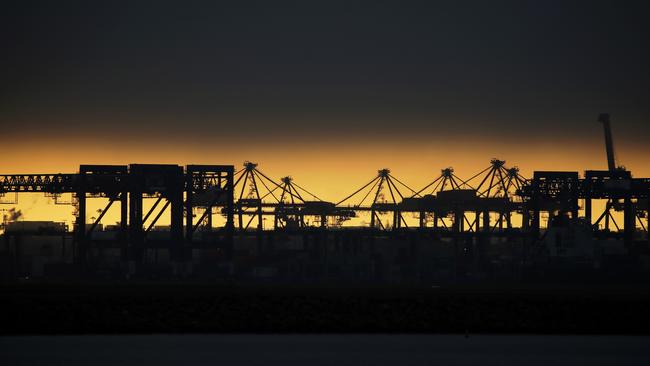
A NEW LEVEL OF CORRUPTION
The “rip on rip off” phenomena on Australian wharves is well known to law enforcement. That’s simply where a bag containing contraband, be it drugs, weapons or any other illegal import, is “ripped on” into a sea container at the source after the consignment is sealed, then “ripped off” at the destination, usually by a corrupt stevedore. Most times the person has no idea what they are taking off, but are following instructions from a crooked family member or ethnic community leader.
But Bingham said that was nothing when compared with the mass importation of drugs he saw as commander of the Joint Task Force Polaris, involving the AFP, NSW Police, Australian Crime Commission and Australian Border Force.
And those organised crime imports were sometimes being aided by corrupt officials from those very Commonwealth agencies, all now collectively under the Department of Home Affairs, as well as private import-export brokerages. Effectively those agencies tasked with protecting our borders had been infiltrated.
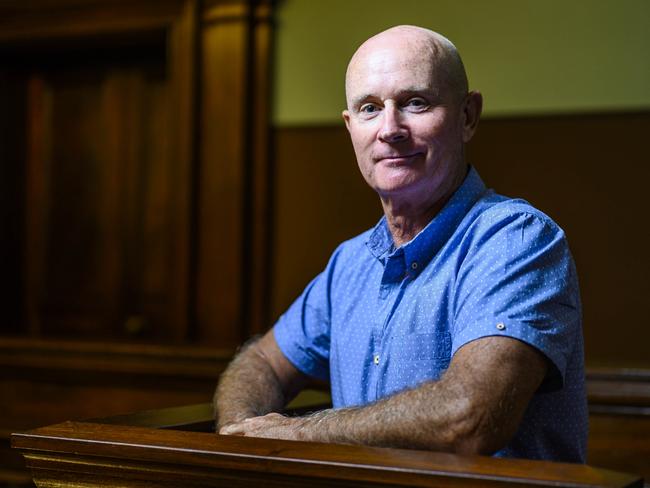
Bingham spent two years heading up the famed Polaris task force up until his retirement from the NSW Police in August 2016. It was unusual for a state officer to be given the honour to lead the federal task force and, he said, it was an eye opener in terms of the corruption he came across.
“That was what quite often caused compromise to investigations,” he said, “because people within various agencies will become aware of a job that you were doing, an investigation, and because their agency had to be aware, it sometimes filtered down to other people within those agencies, who became aware (and) who would then compromise or attempt to compromise the job.
“I’ve been involved in a lot of reporting of corrupt or illegal activity by certain agencies — because I’m (a) NSW police officer some of it was to do with that, but certainly nothing to the extent that I saw overall in relation to the infiltration of agencies when I was a commander at Polaris. I always seem to be constantly reporting to (the) Professional Standards branch of one or more Commonwealth or State agencies … or the Australian Commission for Law Enforcement Integrity (ACLEI), it’s called, and they do the oversight investigation on certain Commonwealth agencies.”
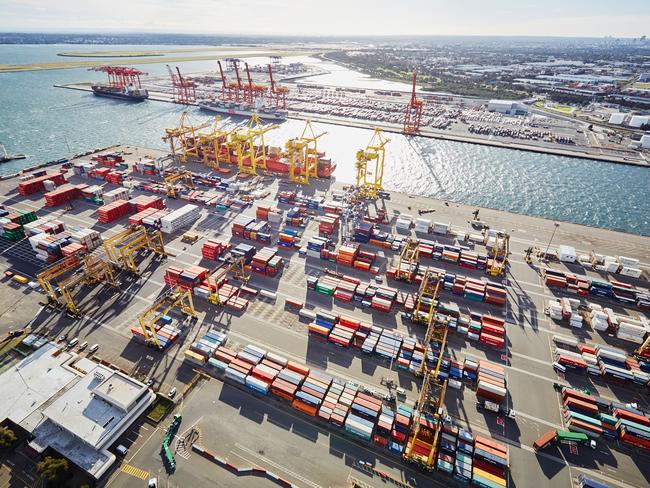
He described the wharves industry as “insular” and quite generational — you have to know someone, generally, to get onto the wharves. But, he said, it was the logistics and supply chain and government agencies where the larger-scale problems lay. He said Polaris, which brought together the expertise of Commonwealth agencies on drug imports with state police looking largely at trafficking once shipments arrived, was tasked with looking at corruption at all levels of the chain, from logistics, supply, storage, trucking and government agencies.
He said the type of corruption seen ranged from assisting in the rip-on rip-off tactic right through to the higher level.
“What we did find a lot of was familial or community ties to gangsters or syndicates, (them) having family or friends within the logistics, supply or government agency area,” he said.
“So while everything is money motivated, there were often family ties, absolutely, between criminal elements and serving members of Commonwealth or local police. It is incredible and it has gone on for many years.”
At its height, Polaris had more than 80 staff, including 40 cross-agency investigators, six intelligence officers and 27 Customs officials, and sparked similar multi-agency operations at other ports in other states, including Queensland and Victoria. Close liaisons were also established with overseas ports, notably in Indonesia and Colombia.
But Polaris was shut down two years ago. The AFP and ABF now launch probes on a case-by-case basis when required.
Originally published as Secret report reveals crime gangs’ links inside police as authorities battle waterfront corruption
